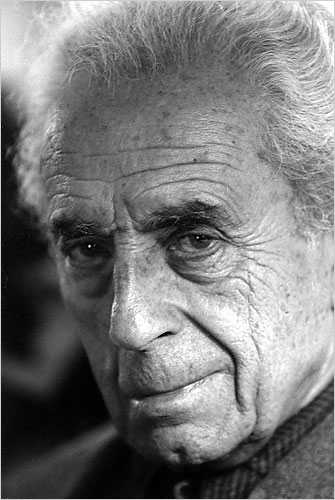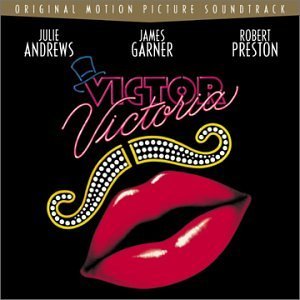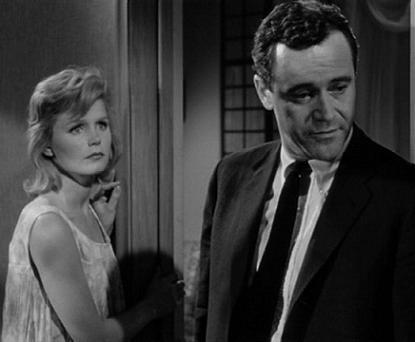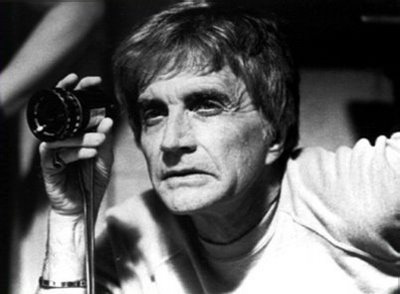|
|
||
|
Pro Tools
FILMFESTIVALS | 24/7 world wide coverageWelcome ! Enjoy the best of both worlds: Film & Festival News, exploring the best of the film festivals community. Launched in 1995, relentlessly connecting films to festivals, documenting and promoting festivals worldwide. Working on an upgrade soon. For collaboration, editorial contributions, or publicity, please send us an email here. User login |
The Poet Of AlienationThursday, August 2--------Michelangelo Antonioni, the Italian director whose chilly depictions of alienation were among the most cherished artistic breakthrough of international cinema, died earlier this week in his home in Rome. He was 94. In 1985, Antonioni suffered a debilitating stroke that left him partly paralyzed, but he continued to make films for two more decades. Along with his fellow auteur Ingmar Bergman (who died less than 24 hours earlier), this poet of alienation is one of the idiosyncratic film giants whose works will remain forever relevant, continuously open to discussion and interpretation. Antonioni rose to international fame and prominence in the early 1960s, as the Italian neo-realist cinema of fellow Italian directors Roberto Rossellini and Vittorio de Sica was waning and the international influence of Italian cinema was not as acute (these were the years when the French New Wave of Godard, Truffaut, Resnais and Rohmer was in bloom). Antonioni reclaimed world attention to Italian cinema, this time producing purposefully arty films rather than the documentary-style that categories post-war neo-realism. Michelangelo Antonioni was born on Sept. 29, 1912, into a well-to-do family of landowners in Ferrara, in northern Italy. He was a born pictorialist, with an interest in oil painting traced back to his teenage years. At the University of Bologna, he began to write stories and plays and to direct some of them. By then, he was also a film fantatic, writing reviews of his favorite American and Italian genre films for the local newspaper. He moved in 1940 to Rome, when he eventually joined the staff of Cinema Magazine, edited by Vittorio Mussolini, Il Duce’s son. In 1943, during World War II, he was able to bankroll his first film, a documentary called GENTE DEL PO (People of the Po Valley), about the difficult lives of local fishermen. The German occupying forces destroyed much of the footage (although it was seen as a short film at the 1946 Venice Film Festival). After the war, Antonioni wrote more film criticism and made more short documentaries. But he became skeptical of the neo-realist movement that dominated Italian filmmaking and yearned for a more aesthetic and poetic approach to filmmaking. His first fiction film STORY OF A LOVE AFFAIR (1950) was a genre film about a man and a woman plotting to kill her husband, that focused on the psychological aspects of the lovers’ emotions. In 1955, after a period of deep depression when his first marriage was falling apart, he had his first important artistic triumph, LE AMICHE (The Girlfriends), about the loveless lives of a group of middle-class women in Turin. It won a Silver Lion at the Venice Film Festival. His follow up, IL GRIDO (The Cry, 1957), starred a young Monica Vitti, an actress who would become his major muse in a trio of films for which the director is still best known.
In 1964, Antonioni made his first color film, THE RED DESERT, with the English actor Richard Harris. It, too, starred Monica Vitti, as a woman coming unhinged. Mr. Antonioni used color to mirror her mental state, having houses and even trees painted bright colors and then changing those colors from scene to scene. By the mid-’60s, he was one of the most famous and controversial film directors in the world, and eventually Hollywood came calling. He signed a three picture deal with MGM, which was then struggling and trying to remain current in a much changed film landscape.
Sandy Mandelberger, In Memoriam Editor
04.08.2007 | In Memoriam's blog Cat. : America Blowup Cannes Cannes Cinema of Italy David Hemmings Entertainment Entertainment Eros Film GENTE Human Interest Human Interest Identification of a Woman Il Duce Il Grido In Memoriam Italian films Jack Nicholson Jeanne Moreau John Malkovich L'Avventura La Notte London Michaelangelo Antonioni Michelangelo Antonioni Michelangelo Antonioni Monica Vitti Monica Vitti oil Oscar Red Desert Religion Religion Richard Harris Roberto Rossellini Rome Sandy Mandelberger Social Issues Social Issues Steven Soderbergh the 1946 Venice Film Festival the 1960 Cannes the 1980 Venice Film Festival the Festival’s Special Jury Prize THE MYSTERY OF OBERWALD THE RED DESERT the Venice Film Festival Turin United States Vanessa Redgrave Vittorio De Sica Wim Wenders Wong Kar-wai
|
LinksThe Bulletin Board > The Bulletin Board Blog Following News Interview with EFM (Berlin) Director
Interview with IFTA Chairman (AFM)
Interview with Cannes Marche du Film Director
Filmfestivals.com dailies live coverage from > Live from India
Useful links for the indies: > Big files transfer
+ SUBSCRIBE to the weekly Newsletter Deals+ Special offers and discounts from filmfestivals.com Selected fun offers
> Bonus Casino
User imagesAbout In Memoriam Mandelberger Sandy Mandelberger Sandy (International Media Resources) [img_assist|nid=5860|title=|desc=|link=node|align=undefined|width=140|height=105]
IN MEMORIAM Obituary Profiles of Entertainment Industry Figures And The Legacies They Leave Behind View my profile Send me a message The EditorUser contributionsUser links |

































